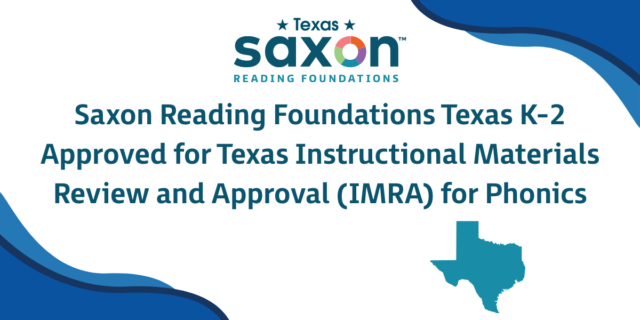
by Anna Gratz Cockerille
For many teachers and students, the summer months are a chance to change pace, to dig into projects of personal interest, and just…breathe. But for many kids, summer is also a time when learning grinds to a halt. Students in lower socio-economic households in particular have little opportunity to practice the academic skills that began to take root and gel by the end of the year. One particular area of well-documented summer decline is in reading. When students don’t read during the months of summer, the effects on their academic progress are disastrous.
Reading researchers Maryann Mraz and Timothy Rasinski spotlighted the summer reading loss issue in a 2007 article in The Reading Teacher (“Summer Reading Loss, (60(8). International Reading Association. 784-789). In this article, they quantified the effects of summer reading loss clearly and startlingly: "A review of 13 empirical studies representing approximately 40,000 students found that, on average, the reading proficiency levels of students from lower income families declined over the summer months, while the reading proficiency levels of students from middle-income families improved modestly. In a single academic year, this decline resulted in an estimated three-month achievement gap between more advantaged and less advantaged students.”
So much of this holds true in writing, as well. When kids' pages stay blank for months, they return to school with markedly less stamina for writing, fewer ideas to fuel their writing, and with less belief in the importance of their writing lives.
Happily, there is much that can be done to set students up for a summer of engaged reading and writing. First and foremost is making sure that they have access to the materials they will need to read and write over the summer. To make sure kids have books, some teachers lend books from their classroom libraries over the summer. Others organize trips to the local library to set students up with library cards and to show them how to check out books. Many local libraries offer summer reading programs with themes and incentives to keep kids reading. Free online programs such as Book Adventure by Sylvan give kids access to a great deal of reading material.
To set kids up for writing, there is nothing much that matches the appeal of a new, blank notebook and all the promise that it holds. In addition to a new notebook, many teachers send kids home with mini-versions of classroom charts they can use for inspiration and support over the summer.
Another way to keep engagement in summer reading and writing high is for students to plan independent projects. In reading, they might choose a project based on a genre or an author. They might set out to read nonfiction in order to learn about a topic. They might create a project to get better at a reading skill, such as stamina. In this case, they would pick a set of books that seem engaging, and they would plan to read for longer and longer stretches as the summer progresses. Or, they might read books about a particular social issue. In all of these cases, arming them with a book list to tackle the project will be immensely helpful.
In writing, students might plan a project in which they will collect key small moment stories to capture their summer. They might plan to write research reports based on topics they love. They might decide to conduct a series of science experiments based on their summer observations and create a writing project in which they record these experiments and their conclusions. Or, they might write a series of persuasive letters to tackle issues that come up in their lives.
Here is a list of questions to help guide students to make plans for their projects:
- What is your reading or writing goal?
- What materials will you need?
- How will you share this work with others?
- How much time will you make each day to read or write?
- How will you know when you’re finished with this project?
- What other projects do you want to do?
What will make summer literacy projects even more rich and meaningful is the chance to share them at the start of the next school year. Allowing time for students to share their summer work at the start of the year is also a great way for teachers to get to know their new students quickly.
Natalie Louis is a senior staff developer for the Reading and Writing Project who has helped countless students to get set up for summer reading and writing success. Join her and the TCRWP community tomorrow to share ideas and grow your thinking about how to support students in their summer literacy work.
♦ ♦ ♦ ♦
Each Wednesday night at 7:30 pm eastern, The Teacher's College Reading and Writing Project hosts a Twitter chat using the hashtag #TCRWP. Join @natalielouis13 tomorrow evening to chat about setting up a literacy-rich summer.
♦ ♦ ♦ ♦
Not on Twitter? Take Heinemann’s free Twitter for Educators course here.
 Anna Gratz Cockerille, Coauthor of Bringing History to Life (Grade 4) in the Units of Study for Teaching Writing Series.
Anna Gratz Cockerille, Coauthor of Bringing History to Life (Grade 4) in the Units of Study for Teaching Writing Series.
Anna was a teacher and a literacy coach in New York City and in Sydney, Australia, and later became a Staff Developer and Writer at TCRWP. She served as an adjunct instructor in the Literacy Specialist Program at Teachers College, and taught at several TCRWP institutes, including the content literacy institute, where she helped participants bring strong literacy instruction into social studies classrooms. Anna also has been a researcher for Lucy Calkins, contributing especially to Pathways to the Common Core: Accelerating Achievement (Heinemann 2012), and Navigating Nonfiction in the Units of Study for Teaching Reading, Grades 3–5 series (Heinemann 2010). Most recently, Anna served as an editor for the Units of Study for Teaching Reading, K–5 series.


